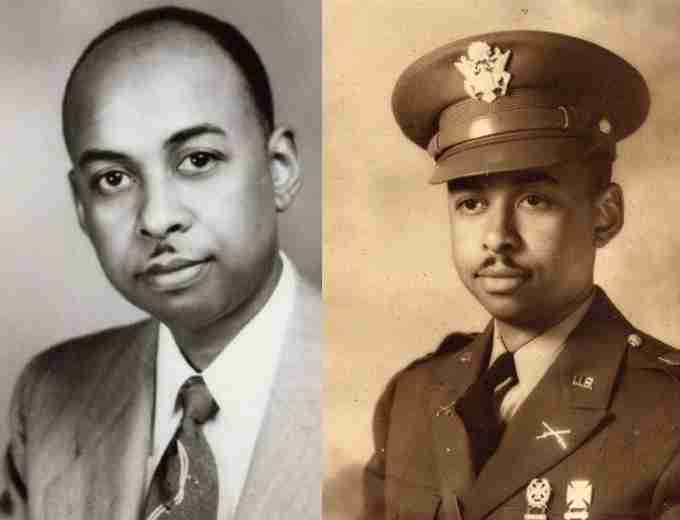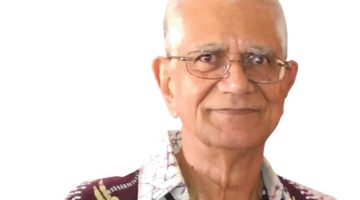The other day a friend reminded me that 50 years ago on July 11, 1964, Lemuel Penn, the black assistant superintendent of Washington, D.C., Schools, was shot to death by the Athens, Georgia-area Ku Klux Klan. Penn’s assassination took place nine days after passage of the Civil Rights Act.
[optinlocker]Lt. Col. Penn was an officer in the U. S. Army Reserves and a decorated World War II veteran returning home to Washington following reserve training at Fort Benning. He left a wife, two daughters and a son. No arrests were made. White injustice meted out white “justice.”
A few days later, on July 18, in the lily-white bastion Yorkville section of Manhattan, New York City, 15-year-old James Powell, a black summer school student, was shot and killed by a white New York off-duty police lieutenant.
A rebellion ignited, engulfing Harlem and the Bedford-Stuyvesant area of Brooklyn for six days. It also spread upstate to Buffalo, New York. Truth is in the eye of the beholder, for all white media and many black news sources called the rebellion “riots.”
Blacks were fed up with the wanton lawlessness of white people and the indiscriminate
hate-filled killings of blacks nationwide by white so-called law enforcement personnel and white supremacist group members. White liberals hurried Negro civil rights activists out front calling for calm while conservatives ran Barry Goldwater hard for the White House
Among the forgotten are Frank Andrews, shot in the back by a white sheriff’s deputy – Lisman, Ala., 1964, no arrest made. Jessie Brown was killed by R. M. Gibson, a white
farmer – Winona, Miss., 1965, no arrest made. Carrie Brumfield was found shot to death in his car on a rural road in Franklinton, La., 1967.
Also:
• 1964: Silas (Ernest) Caston was shot dead by a police officer in Jackson, Miss. CORE and the NAACP filed a suit against Deputy Sheriff Herbert Sullivan. Nothing happened.
• 1964: Jasper Greenwood was found shot dead near his car on a rural road in Vicksburg, Miss.
• 1965: Jimmie Lee Griffith was supposedly killed in a hit-and-run accident in Sturgis, Miss. However, he had been run over at least twice. What about Ernest Jells, accused of stealing a banana in Clarksdale, Miss., 1964. Jells was killed by white police officers who claimed he pointed a rifle at them. James Andrew Miller was shot to death by whites days after being beaten in Jackson, Ga., 1964. One suspect was held, then cleared.
I just randomly picked through a long list of racially motivated violence provided by the Southern Poverty Law Center to illustrate what really went on while so-called leaders were “negotiating” for black people.
For compliant civil rights leaders led by white liberal backers, matters such as public accommodations and the right to vote masked and trumped the calls for self-reliance, equity and economic development espoused by Malcolm X, Robert Williams and a host of other
Afrocentric/black nationalist activists.
Civil-rights leaders begged for social/criminal justice but were caught in a Catch 22 situation wherein they could not organize economic boycotts against the interests of the movement’s white liberal benefactors. Whites had branded such activities as radical and no civil rights leader wanted that label attached to him or his organization.
Through to this very day, the impunity with which every segment of American society views the life of a person of African descent is appalling. A circle of confusion, at best, skews the American lens when viewing black life. This distorted mindset allows injustice to blacks to be just! Black imitation of white “values” objectifies the illusion that white must be right. So blacks tend to go along – the assimilation complex that W. E. B. DuBois wrote about.
Unless, somehow, blacks can awake from the induced somnambulism, white “justice” will always be black reality. With continued persistence and increasing escalation, it can soon be called the white man’s number-one tool to control and attempt to eviscerate black people. Look out!
Al Calloway is a longtime journalist who began his career with the Atlanta Inquirer during the early 1960s civil rights struggle. He is writing a book of essays. He may be reached at Al_Calloway@verizon.net
[/optinlocker]













No Comment